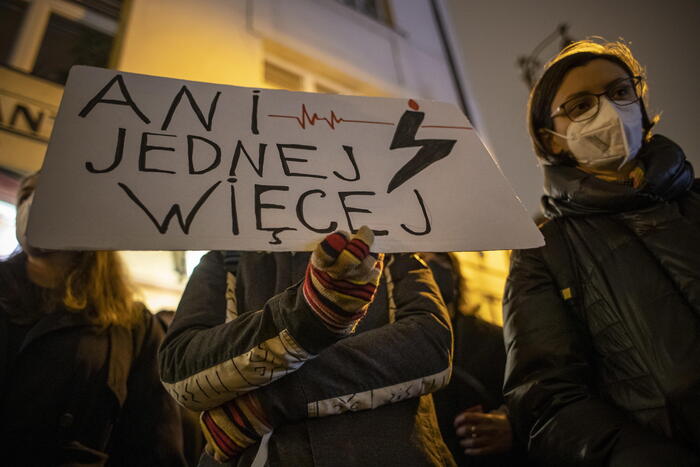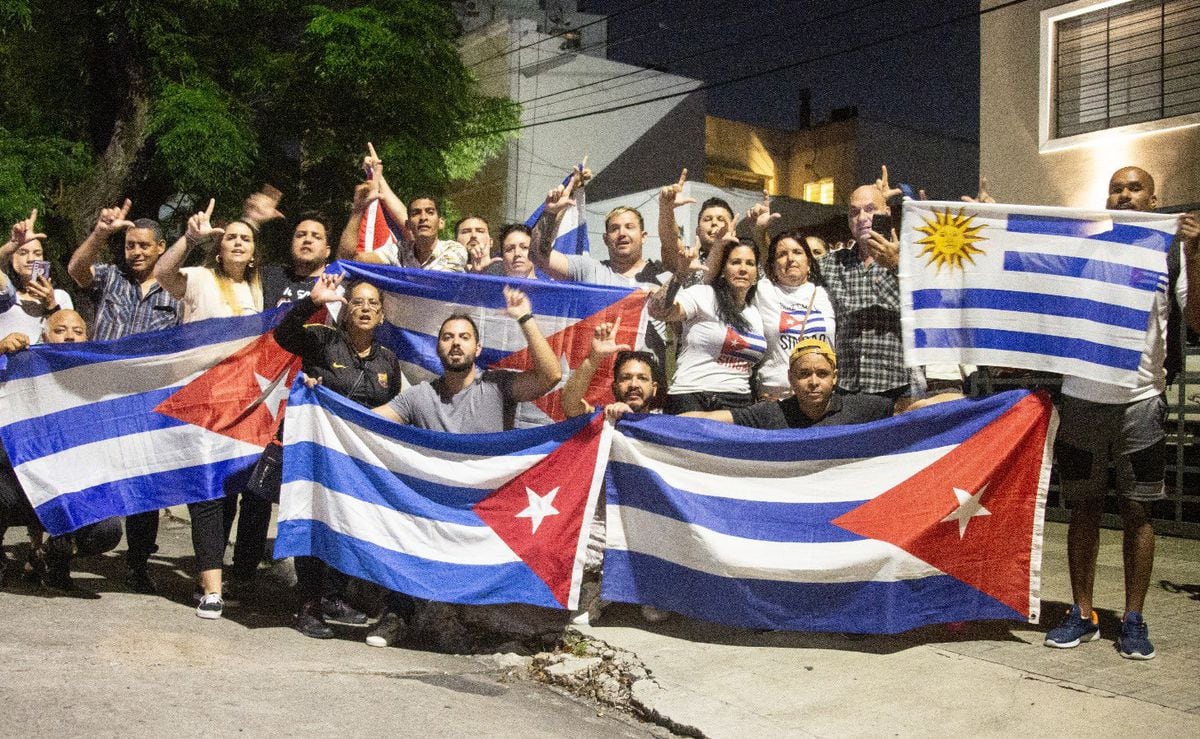Terminating a pregnancy until the 12th week of gestation is a right in Uruguay, but if a woman goes at this time to the public hospitals in the cities of Colonia del Sacramento, Mercedes (southwest of the country) and Melo (east) with the intention of aborting it will have to be transferred to another place, since 100% of the gynecologists in these centers have declared themselves conscientious objectors.
These are data from the social organization Mujer y Salud Uruguay (MYSU), which have aroused concern in the country, where there are other health professionals who also hide behind their beliefs so as not to carry out this practice, especially in inland areas, where they live 50% of the population, although official data is scarce and not up to date.
This newspaper requested an interview with the Ministry of Public Health (MSP) to obtain information on conscientious objector gynecologists and other updated data, but received no response.
But this is not the time to review the law, because the political context of Uruguay is very conservative and the risk of going backwards is greater than the chances of advancing.
Cecilia Stapff, from Health Initiatives
Ten years after the enactment of the IVE law, as it is known in Uruguay, women's rights organizations agree on the need to reform it, even though the country's current political context is not the most propitious.
Others, like the gynecologist Lionel Briozzo, Vice Minister of Health in 2012, aspire for the crime of abortion to disappear definitively from the penal code and be a matter that is resolved between the woman and a medical center, as is the case in countries like Canada.
"The stigma and discrimination that continue to exist towards those who decide to abort as well as towards the professional teams that provide the care are not combated", summarized the MYSU in a report published on the occasion of the tenth anniversary of the promulgation of the law, in which it denounced that authorities of the current government of Luis Lacalle Pou (center-right), who took office in 2020, have placed "'objecting' professionals in charge of the services they refuse to provide."
"Far from advancing, we regressed," settles the organization.
According to Lilián Abracinskas, director of MYSU, the law was never what the feminist organizations wanted, but it was the only one "possible" within the favorable political framework that existed in the country between 2010 and 2015, under the presidency of José Mujica (Front Wide, center left).
At that time in the streets, massive demonstrations showing orange hands called for the legalization of abortion and Mujica did not oppose the norm, unlike his predecessor, Tabaré Vázquez, who vetoed the articles that decriminalized abortion in a law approved by parliament in 2008.
The law establishes the decriminalization of abortion during the first 12 weeks of gestation, which is extended to 14 in case of rape.
The deadlines disappear when there are fetal anomalies or the life of the mother is in danger.
However, to terminate the pregnancy, the woman has to follow several steps: express her wishes before a medical authority, appear before a court made up of a gynecologist, a mental health expert, and a social worker who will explain the risks and alternatives, and reflect for five days. before confirming your decision.
"It would be good to review and improve" the law, admits to this newspaper Cecilia Stapff, from Iniciativas Sanitarias, an association for the defense of sexual and reproductive health and rights.
The person in charge proposes to include midwives and family doctors in this practice for which only gynecologists are authorized and considers that the five days of reflection for the woman who wishes to abort could be optional.
“But this is not the time to review the law, because Uruguay's political context is very conservative and the risk of going backwards is greater than the chances of advancing,” she acknowledges.
10,000 abortions a year
In Latin America in December 2012, when this law entered into force in Uruguay, the right of women to voluntarily terminate a pregnancy was only contemplated in Cuba, Guyana and Puerto Rico.
Since then, Argentina, Colombia, and Mexico have passed laws decriminalizing abortion by stipulating different deadlines.
Currently, five countries in the region prohibit abortion without exception (Honduras, El Salvador, Nicaragua, the Dominican Republic and Haiti) and the rest allow it under a series of assumptions, for example that the life of the woman is in danger, there has been rape or the life of the fetus is unviable.
Ten years later we should have shaken off those ghosts.
We already know that people are not going to go out in hordes to abort
Monica Gorgoroso, gynecologist
According to official data cited by MYSU, in 2013, the first year the law was in force, 7,200 abortions were carried out in the Uruguayan health system and currently an average of 10,000 are performed annually.
The same data show that 95% of the women who expressed their desire to terminate the pregnancy reached the end of the process.
“In these 10 years, it has become clear that the procedure does not stop the woman from having an abortion.
This law does not promote abortion either, but rather creates the conditions in which the practice is carried out”, Abracinskas insists.
According to Mónica Gorgoroso, a gynecologist referring to sexual and reproductive health at the State Health Services Administration (ASSE), there is more and better information about the law to remove the stigma that surrounds it.
“Ten years later we should have shaken off those ghosts.
We already know that people are not going to go out in hordes to have an abortion and that the low birth rate in Uruguay is not due to abortion ”, she assures.
Prejudices and social pressure are felt more strongly in towns and small cities.
This is the case in Salto, a town in northwestern Uruguay, where the application of the IVE law is guaranteed, but obstacles, ignorance and social pressure persist, explains Yanina Roldán, from the feminist escort network Las Lilas.
After approving the law, “no campaigns were carried out to inform about the service.
That work continues to depend on social organizations and feminist movements, ”she laments, in a video call with this newspaper.
Roldán describes the pressure exerted by religious groups in the city and denounces that images and sounds have been shown to women who wish to abort during the ultrasound scans they must undergo, despite the fact that medical protocols clearly indicate that this should not be done. to do.
You can follow PLANETA FUTURO on
,
and
, and subscribe
here
to our 'newsletter'
.

/cloudfront-eu-central-1.images.arcpublishing.com/prisa/3G4SBPCBSFCWLHCVEHVL5N4TV4.jpg)


/cloudfront-eu-central-1.images.arcpublishing.com/prisa/2XWZK2SNNVHNTOU6DYROGV3XVI.jpg)







/cloudfront-eu-central-1.images.arcpublishing.com/prisa/KMEYMJKESBAZBE4MRBAM4TGHIQ.jpg)


